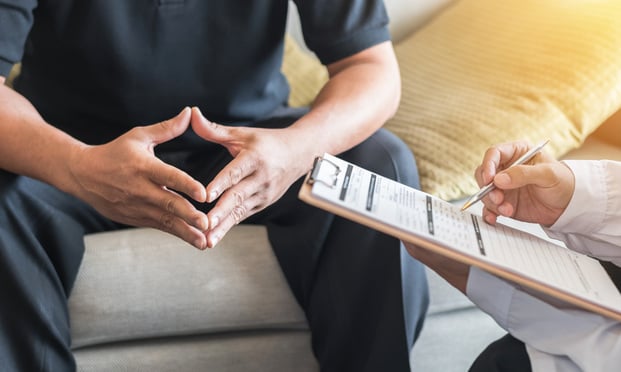How much is opioid addiction costing the United States?
A new study from Fair Health Inc., a New York City-based nonprofit organization dedicated to bringing transparency to health care, finds that medical services for privately insured patients dealing with opioid dependence increased 3,000 percent from 2007 to 2014. Specifically, medical services performed on such patients increased to 7 million from 217,000.
That figure is because of an exponential increase in the use of both powerful prescription painkillers as well as heroin. The two are inextricably linked, with a large percentage of heroin users having turned to the street drug after getting hooked on prescription drugs. It is often easier and cheaper to acquire heroin.
Recommended For You
Opioid addicts were disproportionately male, although the gender gap was not as great among middle-age and older patients. Women accounted for 45 percent of opioid-dependent patients in their 40s and 50s.
In three consecutive years — 2013, 2014, 2015 — prescriptions for opioid medications have declined, a study in May reported. It is far from clear, however, what effect the decrease in prescriptions has had on the rate of opioid addiction.
Treatment advocates have long been sounding the alarm about over-prescription of opioids, but awareness and outrage over lax prescribing practices only recently became mainstream. Earlier this year, a bipartisan group of U.S. senators, for instance, threatened to block the appointment of Dr. Robert Califf to head the Food and Drug Administration as a way to object to what they saw as the agency's complicity in the opioid epidemic.
One of the senators who has been pushing opioid treatment efforts, and who voted against Califf's confirmation, is Sen. Kelly Ayotte, R-N.H., who is locked in a tough reelection battle in a swing state.
Ayotte is the same senator that Republican presidential nominee Donald Trump lashed out against the other day, ostensibly in response to her reluctance to more warmly embrace his campaign for president.
Trump has characteristically pledged that opioid addiction issues would end if he's elected. In keeping with past statements, he also says building his proposed wall on the U.S.-Mexico border would "cut off the source" of heroin.
Trump has further claimed that residents in opioid-ravaged communities, including New Hampshire, have told him that it is drugs coming over the border that's the problem, but he has made no mention of the role played by prescription medication in driving addiction.
Hillary Clinton has released an opioid addiction action plan that focuses on increased funding for addiction treatment, as well as equipping first responders with naloxone, the antidote to opioid overdoses and raising standards for opioid prescriptions.
© 2025 ALM Global, LLC, All Rights Reserved. Request academic re-use from www.copyright.com. All other uses, submit a request to [email protected]. For more information visit Asset & Logo Licensing.







